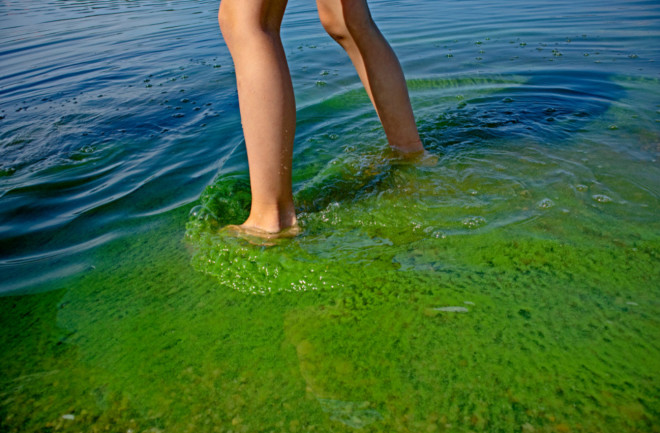Algae may seem like an insignificant issue, but it can actually have a big impact on your home. From unsightly stains to health hazards, here are ways that algae can affect your living space
Algae can cause discoloration on your roof and siding
Over time, algae can cause unsightly discoloration on your roof and siding, leading to a less-than-desirable curb appeal. These green or black stains can also indicate the presence of moisture, which can lead to mold and other harmful growths. While algae growth may be more common in areas with high humidity or frequent rain, any home can be affected. So, it’s important to keep an eye out for any signs of algae growth and address the issue promptly to keep your home looking its best.
It can create a slippery surface on walkways and the pool area
When algae start to grow on walkways and pool areas, it can create a dangerously slick surface. This slimy film is especially hazardous when it rains, leaving you at risk for slips and falls. Besides being a safety issue, algae can also be an eyesore, detracting from the aesthetic of your home. Regular cleaning and maintenance are important to prevent algae growth, and it’s important to take swift action upon discovering any signs of it. Don’t let this unassuming plant create a safety hazard in your home.
Algae can clog gutters, causing water damage to your home’s foundation
When it accumulates in your gutters, algae can prevent water from properly draining away from your home’s foundation. This clogging can lead to water damage, weakened structural integrity, and even mold growth. Plus, the presence of algae can make your gutters more prone to rusting and corrosion. If left unchecked, this issue can become a major headache for homeowners. So, if you notice algae buildup in your gutters, take action and clean them out before it’s too late!
It can infiltrate your HVAC system, resulting in poor indoor air quality
It’s important to know that algae can also affect the air quality in our homes. If it infiltrates your HVAC system, it can lead to poor indoor air quality. This can be concerning, especially for those with respiratory issues or allergies. It’s important to keep an eye out for any signs of algae growth in or around your home and take steps to prevent it from infiltrating your HVAC system. With a little effort, you can ensure that the air you breathe at home is clean and healthy.
Algae can attract pests such as mosquitos and other insects
If left unchecked, algae can attract all sorts of pesky insects like mosquitos, flies, and even ants. These pests don’t just create an annoying buzz around your house, they can also be carriers of disease, leading to health hazards for you and your family. That’s why it’s important to keep your home algae-free and prevent any potential infestations down the line. So, make sure to clean up any algae growth in and around your house to avoid any unwanted companionship from the insect world.
It can cause you to spend more on energy bills
Over time, algae can clog up your air conditioning unit’s coils and filters, which can cause it to work harder and use more energy to cool your home. This can result in higher energy bills that can put a dent in your wallet. So, if you notice algae growing on or around your HVAC system, it’s important to take action and have it cleaned as soon as possible. By doing so, you can ensure that your system is working at peak efficiency, keeping your home comfortable and your energy bills low.
Algae growth can potentially damage your roof and siding
Algae may seem like a harmless little plant that thrives in water, but it could actually cause significant damage to your home’s exterior. Roof and siding algae growth can be unsightly, but it can also accelerate wear and tear on your roof and siding, leading to costly repairs down the line.
If you’ve noticed black stains or streaks on your roof or siding, it’s time to take action. Don’t let algae wreak havoc on your home – consider replacing your roof in West Valley City to prevent further damage and improve the overall appearance of your property. Protect your investment and save yourself from costly repairs by taking proactive steps to combat algae growth.
Being aware of these potential problems can help you take preventative measures to protect your home and yourself from the effects of algae.

